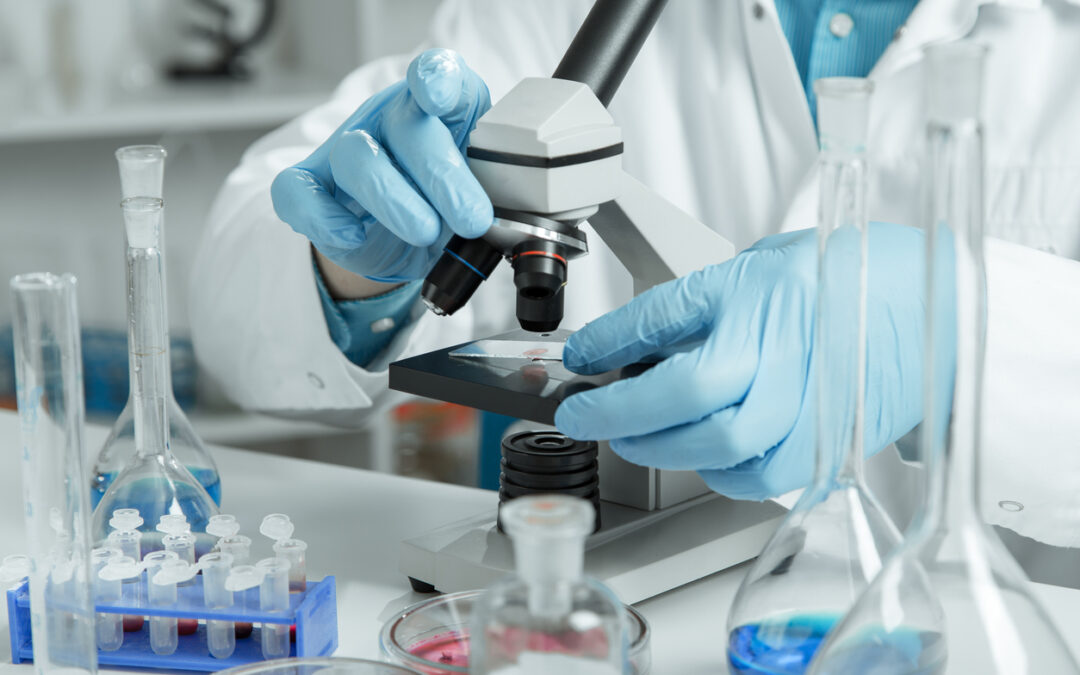Blog

Saying ‘I Do’ Could Reduce Your Risk of Dying from Melanoma
It turns out there’s another bonus to marriage: early skin cancer detection and management. According to a study published in JAMA Dermatology, melanomas are more likely to be detected early in married people than people who are single, divorced or widowed. How can being married help reduce my risks? Data suggests that spouses or partners may help identify melanoma that may have otherwise gone unnoticed. The analysis, which included 52,063 people of various marital statuses, found that skin lesions were detected sooner among married people than they were among those who were never married,...

Dispelling a Cancer Myth
Throughout my practice as a radiation oncologist, I have noticed a recurring question that patients ask; “If the surgeon sticks a needle into the tumor or if they expose the tumor to air, will the tumor spread?” The answer to the question is that realistically, the possibility is very low. In 2015, the Mayo Clinic analyzed 250 patients that had biopsies and found no risk of tumors spreading associated with the procedure. They went further and analyzed 2,000 Medicare patients with pancreatic cancer and found no significant difference in cancer spread between those that had a biopsy versus...

Summer Sun Safety – What It’s About and Why
Summer sun safety means you should focus on safe, outdoor fun while you protect your skin from damage, including dry and itchy skin, sunburns and skin cancer. Arizona typically receives 360 hours of sunshine in September, so you have plenty of opportunities to be outside. With a little planning, you can enjoy the summer sun and protect your skin at the same time. Why is Sun Safety Important? You might not think about it, but your skin is the body’s largest organ. It’s exposed to conditions that other organs are not because it’s on the outside instead of the inside of your body. This makes...

The Importance of Exercise – Before, During and After Cancer Treatments
Did you know that exercise is one of the most important actions you can take during your cancer treatment? It’s true! New research has shown that exercise before, during, and after cancer treatments can: Help alleviate side effects of cancer treatment, such as fatigue, pain, and bone and muscle loss Fuel your appetite Improve your quality of life by reducing stress, anxiety, and depression Reduce the risk of cancer recurrence Help sustain your heart health Maintain or improve your physical abilities Boost your self-image and confidence Help control your weight This doesn’t mean cancer...

Breast Cancer Misconceptions
Chances are you or someone you know has a close relative or friend that has been impacted by breast cancer and they may even be receiving breast cancer treatment at one of our clinics. Busting these common myths about breast cancer can help you be informed about what's real when it comes to this disease. Breast Cancer Myth 1: Breast cancer only occurs in women. Though it is true more women are affected by breast cancer, it still can and does occur in men. According to the National Breast Cancer Foundation, over 2,800 men are diagnosed annually with breast cancer. It is important that a man...

How Exercise Can Benefit Cancer Patients in Active Cancer Treatment
If your oncologist told you there was something safe, free, beneficial and often enjoyable you could do to improve mental and physical health while you undergo active cancer treatment, you might enthusiastically agree right away. Or, you might be skeptical. The good news is that research shows there is such an activity: Exercise! It's true that cancer patients grappling with the tolls of radiation and chemotherapy typically don't make exercise a priority. They can feel physically and mentally exhausted by their cancer treatment regimens. Ironically, if you push through your initial...

What I Learned from My First Colonoscopy
(Note: The recommended age to begin colon cancer screening for those at normal risk as been changed to 45.) I recently turned 50 which meant it was time for my first colonoscopy. Colon cancer is the third leading cause of cancer deaths and generally when caught early, has a good cancer prognosis. Yet, in 2021, 29% of adults age 50 and older had not had a colonoscopy to screen for colon cancer! However, getting your first colonoscopy doesn’t have to be scary, and you can prep to make the procedure go as smoothly as possible. Here’s what I learned from my first colonoscopy: Know the colon...

Reduce Your Risk of Skin Cancer
Originally posted March 2012 More than two million people in the United States will be diagnosed with skin cancer this year. It is the most common form of cancer in this country, but it is also one of the most preventable. As part of Skin Cancer Awareness Month in May, Arizona Oncology reminds the community about the importance of protecting their skin from the sun and other sources of ultraviolet (UV) radiation. UV rays are invisible to the naked eye and are more intense in the summer, at higher altitudes, and in areas closer to the equator. Overexposure to ultraviolet radiation from the...

Fertility for Cancer Survivors
For a man or woman in their childbearing years, a cancer diagnosis can come with a scary thought: will having children be possible? Fortunately, with improvements in treatment and fertility preservation options, having a baby after remission can become a reality for many cancer survivors. The Risks of Infertility After Cancer When it comes to whether or not you’re at risk for infertility after cancer, there really is no one-size-fits-all answer. Overall, the chances of remaining fertile depend on a variety of factors including the cancer type, the treatments you received, how your body...

Mandy’s Story: A Journey With a Very Rare Cancer
Thirty-eight year old Mandy Hanlon did not expect to get a cancer diagnosis when she arrived at her job as a pharmacy tech on a typical day in August of 2023. She describes what she thought was a sudden onset of nerve pain. Her legs “wouldn’t do what I was telling them to,” and she experienced an abrupt bout of numbness followed by pain. “The pharmacist saw how much pain I was in and called my dad to pick me up, and we went to Northwest Hospital,” Mandy recalls. “They did a test on me and saw a mass on my back. After tests and more tests, they found out I had stage four bone cancer and...


